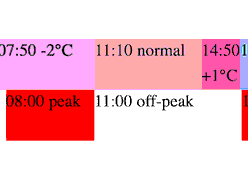Earth Notes: Saving The Planet @Home
Site updated 2026-03-04 11:33 GMT.Want to do your bit at home to improve your quality of life, save money, cut down on waste and carbon pollution, and get the planet back how it used to be?
Did you know that the majority of your neighbours are undertaking energy saving actions every day
? That is also one of the most powerful messages to encourage people to save.
On Earth Notes
Featured: On Condensation Management (easyread)
Learn how you can best avoid problems with condensation, damp and mould in winter. #mould #condensation #ventilation
You have tightened up unwanted ventilation. You have fixed leaky windows and doors. You have dealt with cold draughts to save energy. You may now find that you have more problems with condensation than before. That can lead to mould, and damage to your building. It can also cause health problems for people in the house. Simple actions and some tech can help.
On Website Technicals (2026-03) (blog site tech)
Octopus Innovation Centre Visit (2026) (microgen research tech)
On the UK SSES 1st Phase ESA Regs (2026) (research)
16WW Energy Series Dataset (dataset microgen research tech)
On Website Technicals (site tech)
On Variations in GB Grid Electricity CO2 Intensity: Samples (research tech)
16WW Heat-pump Load Profile (frugal microgen research tech)
Saving Electricity (2026) (frugal microgen)
16WW Heat-pump Control (frugal microgen research tech)
Random: On Website Technicals (2020-08) (blog site tech)
Tech updates: Review rework, CSS contain and large pages, AutoAds and floats, moar moves, reviews fixed, MODBUS et al, Brotli, FAQ droop.
Net utility (electricity) CO2 emitted this year over first 2 months: 80kg

LIVE GB Grid Carbon Intensity (mobile), live grid-tie PV generation and off-grid PV electrical system stats, heat battery top-up control.
Main FEEDS site, podcast, data.
SECTIONS dataset, frugal, microgeneration, podcast, research, review.
OFFLINE Download to your computer before a long journey with poor connectivity. Unpack and read offline. (Also see Zenodo.)
Things That We've Done
We've crunched our carbon footprint. We've become a SuperHome. We've pondered other changes that we might make. But most of all there's been quite a lot of fun learning. Maybe it is my wannabe engineering mindset, but I have made a hobby out of conservation and data watching. I have had fun out of 'tuning' life a little. The rest of my family largely lets me get on with it.
See a full list of articles under search at the top of the page, and here's some actions to start with that we took...
- made my home study/office carbon-neutral including reducing energy consumption from my Internet-facing servers at home from over 600W to about 2W
- switched our electricity supply to a "100% green" tariff with Ecotricity so that what we do consume is as green as possible
- cut our electricity consumption and added grid-tied solar PV microgeneration to the point where we are net exporters to the grid
- weatherproofed/weatherised our home amongst our other conservation measures such as using (OpenTRV) thermostatic radiator values and aerogel insulation and upgrading to energy-efficient appliances
- built a little off-grid solar system that provides lighting and mobile phone charging and power for my Internet servers consolidated onto a single Raspberry Pi that postpones work until the sun shines
- toyed with wind power (turbines) and found that wind does not really work for most of us urbanites
- built a compost heap or three and we grow a tiny amount of veg in our postage-stamp garden...
Things That You Can Do
Effective changes that can be made at home are based on lowering energy/resource demand...
- Saving electricity (and gas) in all sorts of ways, including,
- Lighting: low-energy light bulbs (eg CFL / compact fluorescent and LED preferably at 60 lumens per Watt (60lm/W) efficiency or better). If rewiring, then look at 12V light circuits connecting to PV/battery systems.
- High-efficiency white goods (eg fridges) and other electrical goods at home and at work. Look at energy consumption in use, eg per wash or while on, and in 'standby' mode if you won't be turning them off at the wall. Choose an energy supplier that provides 'green' energy and supports renewables.
- For cooking: investigate CO2 savings with induction cookers and microwave ovens.
- Clothes washing: alternate ideas with drying (eg on a line), and low-temperature (cold/30°C/40°C) washing and do full loads. Also, simple changes in habits and textiles (wool is brilliant compared to cotton for whole-life costing as well as washing/drying/ironing). Re-use fashions!
- Low water-use toilets, showers.
- Insulation and thermal capacity (over-cladding buildings).
- Close curtains at dusk to retain heat (and on hot sunny days to keep the sun/heat out).
- Turn down your heating thermostat 1°C for up to 10% saving. 18°C to 21°C is about right during the day (and hypothermia is only really a risk when temperatures at home are as low as 5°C, but spending more than two hours at 12°C raises blood pressure), and nearer 14°C at night when sleeping. Only heat rooms that you are using. Use a timer (or something smarter) to avoid heating when no one is home! Wearing the right clothing helps keep you comfortable at lower temperatures.
- Don't have your hot water thermostat set higher than 60°C/140°F, and 'instant' water heaters avoid losses from a tank for new systems.
- Don't leave gadgets and appliances on standby/charging, turn them off (maybe with a smart power-strip or trailing adapter) or unplug them. You might trim as much as 30% off your electricity bill.
- Check your mains electricity use at home with tools such as the Kill-a-Watt meter, or just read your supply meter daily or weekly. Gas too.
- Minimise the electricity you use at times of peak grid load (eg 4pm to 9pm in the autumn/winter in the UK) since more carbon-intensive and expensive fuels may be burnt in 'peaking' plants, and the grid is under most strain too. Intensity at peak time circa 2009 was ~0.6kgCO2/kWh, as much as 50% over typical levels.
- On the flip-side, make good use of energy when it's abundant such as saving up computing work until the sun is shining for low-carbon results.
- Reduce, re-use, recycle (including electricals).
- See some thoughtful tips at MoneySavingExpert.com.
News
- : United Downs: first UK geothermal power plant of 3MW electrical, 24GWh/y heat, plus lithium extraction.
- : Britain secures record amount of solar in renewable power auction (AR7):
6.2 GW of renewable projects secured, 4.9 GW solar
. Full AR7enough electricity to offset 3/4 of UK LNG imports
: New UK onshore wind and solar is '50% cheaper' than new gas. - : UK's first rapid-charging battery train ready for boarding this weekend:
... recharges in three and a half minutes between trips ...
at 2MW. - : Monthly deployment of all solar photovoltaic capacity in the United Kingdom: UK rooftop solar growth reached an all-time high in 2025, adding 800MW.
- : UK to join major wind farm project with nine European countries: For the first time, some of the new wind farms will be linked to multiple countries through undersea cables known as interconnectors ...
- : UK homes to get £15bn for solar and green tech to cut energy bills in Warm Homes Plan [govUK2026WHP] also What does the Warm Homes Plan mean for the UK's energy and infrastructure sector?.
- Archived news...
References
- [baldwin2016past] Past-focused environmental comparisons promote proenvironmental outcomes for conservatives
- [govUK2026WHP] Families to save in biggest home upgrade plan in British history: Government launches Warm Homes Plan to upgrade the nation's homes, help families cut their energy bills, and tackle fuel poverty
(Count: 2)



